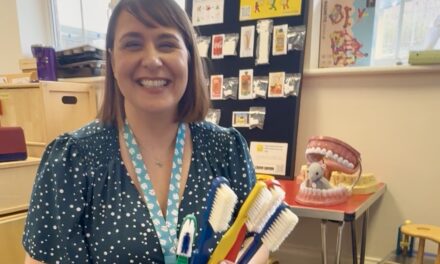The theme of this year’s Parent Mental Health Day (27 January) is ‘creating positive relationships’. So what makes a positive relationship? How do parents create one? And most importantly, how does this promote good mental health?
“Moments of connection, of being seen and understood, are important to all of us.” – Philippa Perry, author of “The Book You Wish Your Parents Had Read”.
What makes a positive relationship?
A positive relationship is a healthy one. This could be defined as one that has trust, honesty, respect, and open communication. A dynamic where everyone feels heard and valued as the unique person they are. And boundaries! In recent years, we’ve heard the term ‘boundaries’ a lot. A boundary is where we consciously decide what we will or won’t accept (and we work to maintain it through clear and open communication). This helps limit the risk of resentment, burnout, and disappointment in our relationships.
When it comes to children, a boundary could mean what you expect as a parent from them. For example, “I expect you to be honest about where you are and who you are with so I can keep you safe.” A boundary could also be with others and how they treat your children. For example, “I will not let people openly comment on my child’s body/weight/diet”. It could also be a boundary with our partner, “we will not undermine each other in front of the children so we appear unified”. The boundary could even be with yourself: “I will not put pressure on my child to be the best, only to try their best”.
How do parents create positive relationships with their children?
The YES team decided to go straight to the source and ask the parents in the team for their tips and advice on how they work towards positive relationships. It’s important to note that every parent, child, and family is different. We all have different experiences, different privileges, and resources to work with. What works for one parent may not be possible for another. This list is to share different perspectives, not to shame, judge, or create comparisons.
So, over to you, parents…
“Don’t be scared to say sorry to your child and tell them when you’ve made a mistake or overreacted to something. It’s amazing how many adults find it hard to say sorry, and having this rule for the family helps to normalise it for everyone. It also shows children (and adults) that it’s OK to make mistakes, talk about them and learn from them.” – Phie, mother of three
“Relationships can become very strained, particularly during the teenage years. It’s not enough just to be sharing the same space – make time to stop what you’re doing and listen. When there is a dialogue between you, don’t jump in, don’t be defensive, just allow your child the opportunity to express themselves. Don’t interrupt even if you don’t like what they’re saying. Everyone needs to feel that they’ve been heard.” – Elaine, mother of two
“Remind yourself often of the value that fun and spontaneity can bring to your family. You can’t always be that ‘fun mum/dad’, but don’t be afraid to say ‘yes’ to some things that you usually automatically say ‘no’ to. It’s really easy to always stay in your practical adult-head, where you instinctively know the most efficient way to do something, but kids don’t care about nonsense like that and the odd shake-up of ‘the rules’ makes us feel like we’re all on the same team.” – Claire, mother of two
“It starts with a lot of love and support and good two-way communication. Listen and allow your kids to talk, give them an environment where they feel safe, supported and able to talk about anything and not be judged. Sounds a bit cheesy and there will be bumps in the road but I think if you’ve got that basic platform then you’re heading in the right direction.” – Martin, father of three sons
“We try to eat together every night, getting the kids involved in getting the meal ready – helping to cook or serve up, laying the table, and ban mobiles and other devices from the dining table! We also make sure everyone gets a chance to have their say – we even use the hands-up system (even the adults) to make sure everyone gets the opportunity to share their news.” – Saffron, mother of twins
“Don’t place unrealistic expectations on yourself and be confident to do what works for you and your family.” – Karen, mother of one
It’s also important to create positive relationships outside of our family unit and have an extended support network. Especially when our home life has big challenges or changes…
“If your child is struggling with mental health, it can be a slow, painful, and lonely path as a parent. But you are not alone. I used to keep everything to myself. But it has helped beyond measure that I now share (even risking over-sharing) what’s going on when close friends ask, and importantly with my work colleagues and managers. It turns out that they don’t judge and their support keeps me going. And lastly, be kind to yourself and don’t be afraid to ask for advice.” – Lesley, mother of one
How does creating healthy relationships promote good mental health?
Severe or long-term stress is one of the biggest causes of poor mental health so ensuring your home life is working well, and your relationships are strong, will only have a positive impact on your wellbeing. Obviously there are other factors such as money and health that impact how we feel, but nurturing healthy relationships is a large piece of the puzzle.
Relationships that feel safe, secure and respectful are vital because they also make us feel safe, secure and respected when we’re around those people. We all want to be valued and heard, so being in a space where everyone can share their point of view and show who they are, helps create intimacy, authenticity and closeness. This is true, whether we are a parent in their forties, a child in primary school or a teenager at college.




